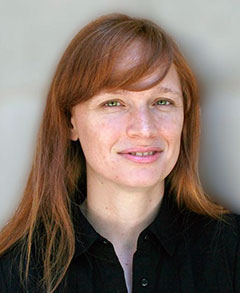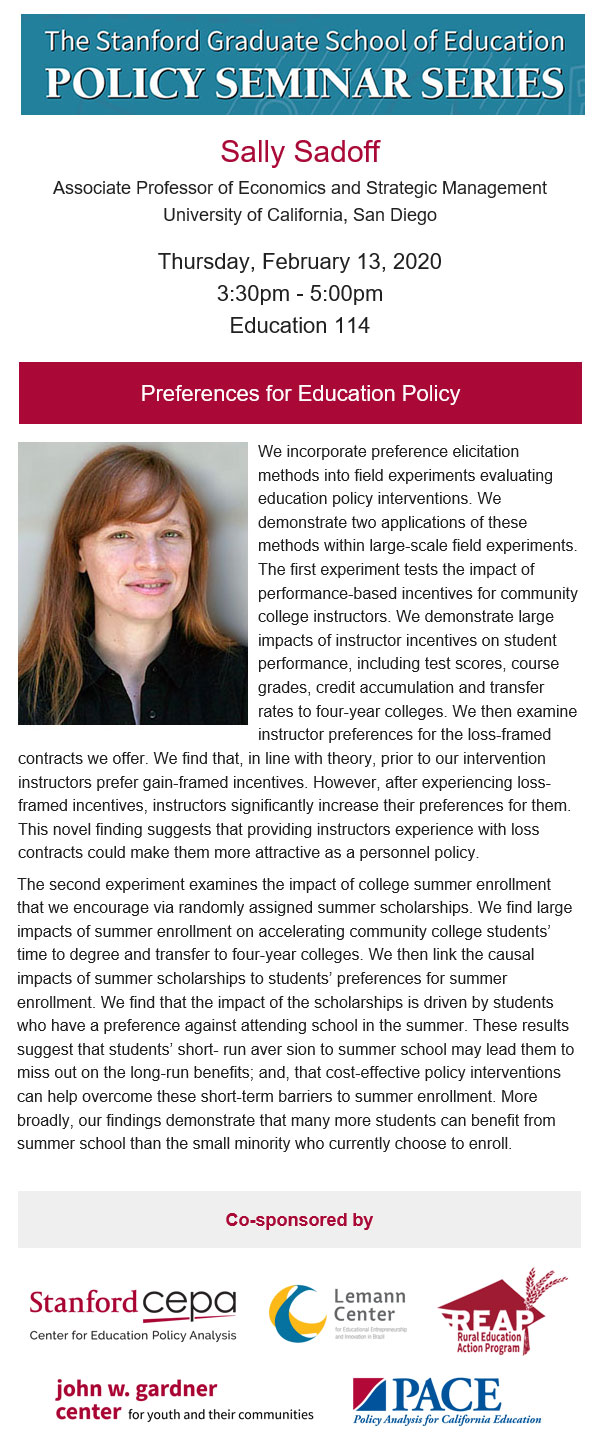
Sally Sadoff, Associate Professor of Economics and Strategic Management, UC San Diego
Preferences for Education Policy
We incorporate preference elicitation methods into field experiments evaluating education policy interventions. We demonstrate two applications of these methods within large-scale field experiments. The first experiment tests the impact of performance-based incentives for community college instructors. We demonstrate large impacts of instructor incentives on student performance, including test scores, course grades, credit accumulation and transfer rates to four-year colleges. We then examine instructor preferences for the loss-framed contracts we offer. We find that, in line with theory, prior to our intervention instructors prefer gain-framed incentives. However, after experiencing loss-framed incentives, instructors significantly increase their preferences for them. This novel finding suggests that providing instructors experience with loss contracts could make them more attractive as a personnel policy.
The second experiment examines the impact of college summer enrollment that we encourage via randomly assigned summer scholarships. We find large impacts of summer enrollment on accelerating community college students’ time to degree and transfer to four-year colleges. We then link the causal impacts of summer scholarships to students’ preferences for summer enrollment. We find that the impact of the scholarships is driven by students who have a preference against attending school in the summer. These results suggest that students’ short-run aversion to summer school may lead them to miss out on the long-run benefits; and, that cost-effective policy interventions can help overcome these short-term barriers to summer enrollment. More broadly, our findings demonstrate that many more students can benefit from summer school than the small minority who currently choose to enroll.


